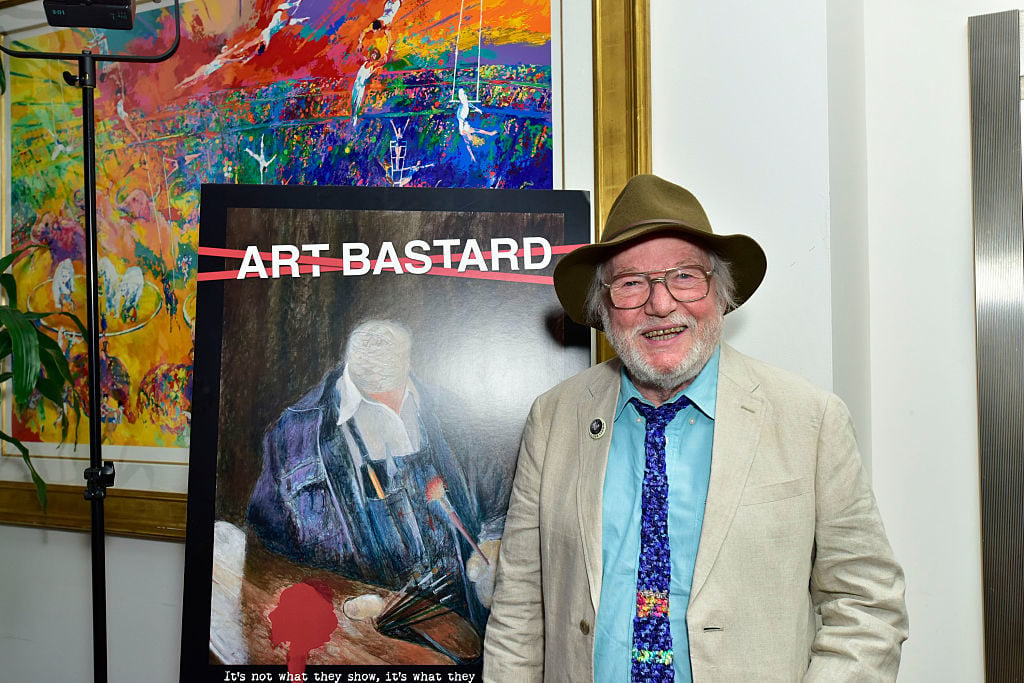Law & Politics
This Artist Sued Museums for $100 Million for Declining to Show His Work. But a Judge Isn’t Buying It
"Art Bastard" Robert Cenedella says his lawsuit is about "exposing the secrecy and insider dealing of the art world."

"Art Bastard" Robert Cenedella says his lawsuit is about "exposing the secrecy and insider dealing of the art world."

Eileen Kinsella

Artists often feel like the art world is rigged against them. But so far, the courts don’t agree.
A judge has thrown out an antitrust case brought by artist Robert Cenedella—also known as the “Art Bastard”—against the Metropolitan Museum of Art and four other major New York museums for allegedly conspiring to eliminate competition in the art market by showing only a small group of predetermined names. Surprisingly, however, he also left the door open for Cenedella to try again.
Judge John Koeltl of the Southern District of New York agreed with attorneys for the museums, who said that Cenedella’s amended complaint (his second attempt at the lawsuit) lacked standing and failed to persuasively state a claim for what they might owe him.
This past February, Cenedella filed a class action suit against the Metropolitan Museum of Art, the Whitney Museum of American Art, the Museum of Modern Art, the Solomon R. Guggenheim Museum, and the New Museum for conspiring to exclude him and other deserving artists from their collections and exhibition programs.
In his 32-page ruling, Koeltl outlined in detail why he sided with the museums. “Other than vague statements that his work is of a quality worthy of display in the defendant museums and has been the subject of shows in the United States and Europe, the plaintiff provides no reason to infer that the defendant museums would in fact purchase and display his art but for the alleged conspiracy,” he wrote. Nevertheless, the judge dismissed the amended complaint without prejudice, which means that Cenedella can now file a second amended complaint by January 15, 2019, and the museums would have until February 5 to reply.
A lawyer for the museums, William Cavanaugh of Patterson Belknap Webb & Tyler, called Cenedella’s claims “implausible” during oral arguments on Monday, adding that many people experience professional disappointment, but “few of us would try to transition that into an antitrust suit.” He requested that the case be dismissed, arguing that Cenedella had failed to demonstrate antitrust standing, a conspiratorial agreement among the museums, or any adverse effect on competition from the alleged conspiracy.
In his opposing arguments, Cenedella’s attorney, Nicholas Fortuna, argued that museums—and the art industry in general—is improperly opaque. “It’s not like baseball, where you know who the home-run hitters are,” he said. The judge was not persuaded, criticizing Fortuna for what he said were contradictory statements, such as his claim that the museums have “no criteria” for selecting artists while alleging a conspiracy (which by definition is based on groups favoring certain criteria over others).
Judge Koeltl also declined Fortuna’s request for discovery—which would allow the court to see the actual agreements and correspondence between galleries and museums—by saying there was not yet enough factual evidence presented to make such documents available.
Despite the dismissal, Cenedella remains undaunted. Responding to the decision, he told artnet News via email: “This lawsuit was never about me. It has always been about exposing the secrecy and insider dealing of the art world, in which curators, dealers, and donors conspire to profit off of the work of a select few artists, regardless of talent or artistic merit. Almost one-third of all solo museum exhibitions in the United States—and at the Met, MoMA, the Whitney, the Guggenheim, and the New Museum—feature artists represented by just five galleries, out of more than 1,400 galleries in New York City.”
He noted that “the closed ecosystem is heavily influenced by well-connected collectors, galleries, art dealers, auction houses, and does not benefit artists or the art-loving public. This lawsuit was just the first step. I will not stop my efforts to make the art industry more transparent, fair, and accessible for artists. I believe now more than ever that the art industry in America needs to be regulated.”
Attorneys for the museums did not immediately respond to a request for comment.